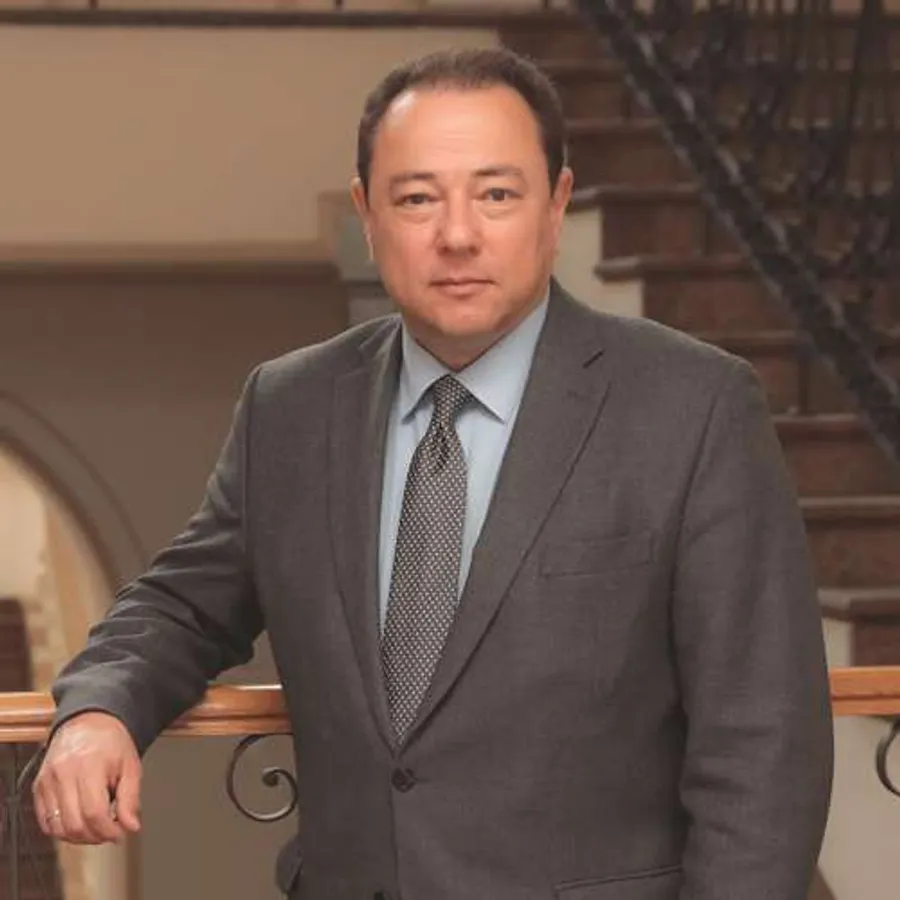
2022年2月24日、突如始まったロシアのウクライナ侵攻から、まもなく1年。日本の報道だけに頼らず、英語を通じてウクライナ情勢を知ることを目的に『英語で読む・聞く・理解する ウクライナ戦争』を刊行しました。ウクライナのゼレンスキー大統領のスピーチをはじめ、有識者へのインタビューとニュースを一冊にまとめた音声ダウンロード付きの英語学習本です。ここでは、本に掲載できなかった、在日ウクライナ大使への独占インタビューから、「日本人が英語を学ぶ重要性」についてご紹介します。英語と日本語の両方でお楽しみください。
日本に英語が普及しない理由とは
聞き手:この本(『英語で読む・聞く・理解する ウクライナ戦争』)の目的は、読者が英語を学ぶことで、日本のメディアだけでなく、より幅広い視点から英語で情報を得られるようになることです。もしかしたら、英語で世界中の人に意見を言えるようになるかもしれません。国際的に活躍する大使というお立場から、読者にメッセージをお願いします。
Interviewer: The goal of this book is to help readers learn English so that they can obtain information in English from a wider range of perspectives than merely that of the Japanese media. Possibly they can voice their opinions in English to people worldwide. Please give the readers a message as an ambassador who has worked internationally.
コルスンスキー大使:私が日本に来たとき、とある大変学歴の高い高齢の日本人に、なぜ日本では英語がそれほど普及していないのかと尋ねました。すると、彼の答えは非常に興味深いものでした。それは、「日本人は好きなもの、欲しいものがすべて日本にあるからです。国の外に出てモノやサービスや食べ物を手に入れたり、自然をめでたりする必要がない。日本には何でもあるからです」と。
Sergiy Korsunsky: When I arrived in Japan, I asked one very well-educated senior Japanese person why English is not that popular in Japan. And his answer was extremely interesting. He said, “That’s because the Japanese people have everything they love or they want in Japan. They have no need to go outside to get goods or services or food or see nature. They have everything in Japan.”
確かに日本は非常に豊かな国です。しかし、今、私たちは、世界が変わりつつあることを目の当たりにしています。日本がそうなることを望んでいるのではなく、外の世界が変わっているからで、日本の役割も変わりつつあります。そして、もうすぐ、まったく違う日本を見ることになるでしょう。信じてください。なぜなら、日本が国際舞台でもっと活躍しなければならないことは、避けられないからです。より多くの日本企業がグローバル化を進めなければならず、現地の人々、現地のスタッフだけには頼れないでしょう。英語を話せる経営者や起業家が必要になってきます。なぜなら、英語は国際語だからです。国際的なコミュニケーションにおいてです。ドイツ語やフランス語が、英語より人気がないとは言えませんが、でも間違いなく、英語が話せれば、ほとんどのやりとりをカバーすることができます。
It is true that Japan is a country of enormous richness. But what we see now is that the world is changing. It’s not because Japan wants it to, but because the outside world is changing, and the role of Japan is changing. And very soon, you will see a completely different Japan. Trust me. It is unavoidable that Japan must be much more active in the international arena. More Japanese companies must go global, and they will not be able to rely just on the local population, local staff. They will need managers and entrepreneurs who speak English because English is an international language, I mean, for international communication. I cannot say that German or French is less popular. But, definitely, if you speak English, you will cover the majority of your communication.
特に日本の若い人たちが、英語の知識が自分にとって非常に重要な道具であること、良い仕事や機会を得るための競争世界において強みになることを理解してくれればよいのですが!私なら彼らに、英語を学んでコミュニケーションを取るように、それどころか、1年か2年、日本を出て、まだ若いうちに外の世界を探検するよう勧めるでしょう。
And if only young Japanese specifically could understand that knowledge of English is an extremely important instrument for them, that it’s an advantage in a competitive world where they will compete for good jobs or for opportunities! I would urge them to study English and to communicate and even try to find a way to get out of Japan for a year or two when they are still young to explore the outside world.
ところで、大使として、日本の政財界のエリートたちと交流してきた経験から言えることは、彼らの95パーセント近くは海外で過ごしたことがあり、ある程度の英語を話すことができるということです。つまり、海外で生活したり、勉強したり、働いたりしたことがあるのです。これは本当に重要なことで、日本の役割が変わりつつあるからです。日本は変わります。日本がこのような状況に陥ったのは、外部の力によるものであり、日本はそれに対応しなければなりません。そして、そのことを理解し、言語に特別な注意を払うことは、非常に重要です。
By the way, being an ambassador and communicating with the political elite and business elite in Japan, I can say that nearly 95 percent of them have spent some time abroad and they speak some English. I mean, they lived or studied or worked abroad. And that is really important because the role of Japan is changing. Japan will be different. It is outside forces that are bringing this upon Japan and Japan must respond. And it is extremely important to understand and to attach special attention to language.
日本語を学ぶウクライナの若者たちの将来

コルスンスキー大使:ウクライナに関しては、ちょっと事情が違います。声を大にして言いたいのは、日本の35以上の大学がウクライナの学生を受け入れてくださっている、ということです。ほぼ全員が日本に溶け込み、何らかの日本語を学んでいます。彼らには日本人の友人がいて、日本文化を理解し、本物の日本語を話します。ですから日本で1年、いや2年過ごした学生たちは、私の目から見ると、彼らが母国に戻ってくれば、ウクライナで真の力を発揮するための素晴らしい機会が得られるでしょう。
Korsunsky: When it comes to Ukraine, it’s a little bit different. I would like to stress that more than 35 universities in Japan accepted Ukrainian students. Almost all of them have been integrated into Japan, almost everyone has studied a little bit of Japanese. They have Japanese friends, they understand Japanese culture and they speak real Japanese. So, from my perspective, those students now who’ve spent a year, maybe two, in Japan, they will have gorgeous opportunities to be a real force in Ukraine when they are back.
日本語はとても複雑なので、日本で学ばない限り、きちんとした日本語が話せると思ってはいけません。つまり、基本的なことは話せても、細かいことは話せないし、文化の違いなどを明確に理解して話せるわけではないのです。だから、もうすぐ、日本で日本語を勉強したウクライナ人や日本びいきのウクライナ人が本格的に増えてきます。彼らはウクライナと日本の間で、ビジネスや学術的な結びつきを確立する助けになるでしょう。これは大きなメリットです。しかし同時に、もう一度強調しておきたいのは、その学生たちは皆、英語も話すということです。ウクライナでは、学校では1年生から英語が義務教育です。学校に行ったら、英語を学ばなければならないのです。
Because the Japanese language is very complicated, and without studying in Japan, you can’t even think of speaking proper Japanese. I mean, you may speak about basic things, but not in detail, not with a clear understanding of cultural differences. So, very soon, we will have a serious number of Ukrainians who have studied Japanese in Japan and Japanese lovers. They will be able to help in establishing business contacts and academic contacts between Ukraine and Japan. This is a huge advantage. But, at the same time, I would like to stress again, all those students, they speak English, too. In Ukraine, English is obligatory from the first grade in school. You go to school, you must learn English.
ですから、現在ウクライナでは、特に若い人たちの間で、英語が広く話されています。彼らは話すことを恐れていませんし、旅行することを恐れてもいません、そういうコミュニケーションのレベルだからです。でも、日本についていえば、彼らが日本語と英語の両方を話せるという点で特殊です。それはとてもいいことです。
So that is why now, in Ukraine, English is spoken very widely, specifically by young people. And they’re not afraid to speak, they’re not afraid to travel, because that’s the level of communication they have. But with Japan, it has a special flavor in that we have them speak both. That’s very good.
聞き手:英語は国際語であることに変わりはありませんからね。
Interviewer: English remains the international language.
コルスンスキー大使:もちろんです。つまり、私は数学者ですが、数学には英語が一番適しています、これは数学的な言語です。物事を簡潔に説明するのに非常に適していますし、それは科学にとって非常に有用です。だからこそ、当然ながら、英語が国際語であるということからの逸脱はないわけです。
Korsunsky: Yes, of course. I mean, I’m a mathematician, and I can tell you that English best suits math – it’s a mathematical language. It’s well suited to a concise explanation of things, which is very useful for science. So that is why, of course, we don’t see any deviations from this.
英語で読む・聞く・理解する ウクライナ戦争
コルスンスキー大使のインタビュー本編は『英語で読む・聞く・理解する ウクライナ戦争』に掲載しています。ぜひお手に取ってご覧ください。
![英語で読む・聞く・理解する ウクライナ戦争[音声DL付]](https://m.media-amazon.com/images/I/81Bl159DBZL.jpg)






